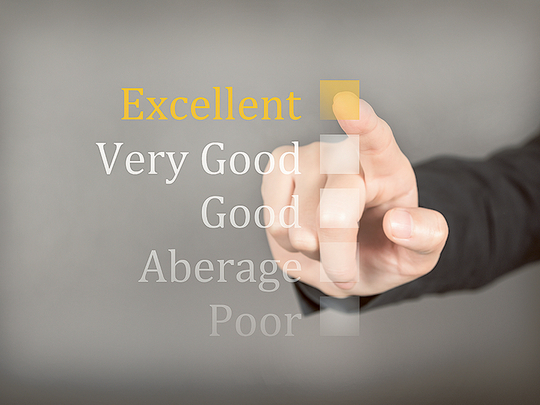
Dubai: “Vote” — no self-respecting digital media platform will let a day pass by without asking their audience to cast their “Yes” or “No” on any topic trending that day. It could be anything, from opinion about a celebrity’s dress at an awards gala to whether they believe the latest organic food fad is good for them.
And, of course, there are the seemingly endless questions about the status of the job hiring market.
But with all these instant online opinion polls, isn’t the process getting diluted? The anonymity of the respondents often makes it a platform to vent grievances rather than offer a considered opinion.
More to the point, can brands keep trusting the results derived from similar exercises for their own needs? And, just as pertinent, doesn’t this uncertainty tell on the research firms that conduct such online polls?
“In the Middle East, the overall culture is still relationship-sensitive, emotional and polite,” said Faten Abu-Ghazaleh, founder and President of Service Hero, a marketing services firm, which operates a brand perception index. “To ask someone directly what they think of you when they are in your environment will usually yield results that are slightly more favourable as opposed to an independent entity asking for opinions about a third-party.
“The more sophisticated an individual is, the more likely they will express rational versus emotional feedback. So anonymity today ensures transparent and accurate feedback.”
Which also explains why online polls are now the favoured option rather than the traditional face-to-face or telephonic interactions with consumers, which can be time and money consuming.
“It has certainly become easier for clients to access consumer sentiments via online resources, either by conducting their own online surveys or via social media analysis,” said Gagan Bhalla, regional General Manager at AMRB, the research firm. “However, this is mostly around consumer opinion and sentiment, there are many other aspects of market research, like in-depth consumer/category understanding, mix testing, habits and behaviours, etc., where the rigour of so-called traditional market research is still required.”
But there is also a flip side to being anonymous when giving an opinion online. Respondents could get carried away in making their feelings known about a particular brand, and might end up being overly biased.
That doesn’t help the brand or the polling process. “The concern with online is not so much about margin of error or statistics, but more about independence and unbiasedness of the outcomes,” said Bhalla. “Clients trust market research agencies because they are independent parties, and hence they can be more objective in both the design as well as reporting of findings, which could, at times, be compromised in internally run surveys.
“There is definitely pressure on the market research (MR) industry to be more innovative and forward looking. The issue is not so much about cutting rates, but more about delivering value to clients at a much faster pace than in earlier days.
“Consumers nowadays are connected 24x7, and marketers need to be able to understand and respond to them at a quicker pace as well. And that is pushing the MR industry towards developing more innovative solutions around online, mobile and social media.”












